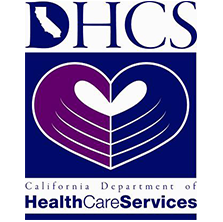This article contains information about commonly prescribed yet potentially addictive medications. Below are some of the most common prescription drug addictions:
When patients have been prescribed medication for pain management following a surgery, an injury, or an illness, they are often unaware of the potential risks of addiction. Even when medications are taken as prescribed, they can be highly addictive and dangerous if abused. As the number of prescription rises, so do the rates of individuals misusing them.
Most commonly, prescription medications affect your brain’s reward system by flooding it with dopamine. The dopamine gives the user a pleasurable feeling, or “high”, that motivates the person to continue to use the drug. Over time, as the drug is taken compulsively, the person will depend on the drug to feel “normal”.
Many misused prescription drugs alter a person’s judgment and thinking as well as leading to various health risks such as addiction and overdose. It can also lead to addiction to various illicit recreational drugs, such as cocaine and heroin. It is critical for patients to understand the risks associated with prescription medication and take precaution to avoid addiction.
Oxycodone (OxyCotin)
OxyCotin is a time-released painkiller commonly prescribed to people in need of major pain relief. It works by altering how the central nervous system responds to pain. It can be injected, snorted, or crushed. Similar to heroin, it produces a euphoric and sedative feeling.
Codiene
Codeine is often prescribed to treat mild to moderate pain. It can also be combined with other medications to treat cold and flu symptoms. It is commonly found in prescription cough syrup. The effects last only a few hours and are often prescribed with other medications. Codeine provides the base for the illicit drug concoction known as “purple drank”, “sizzurp”, or “lean”, which is a combination of codeine, soda, and candy.
Fentanyl
Fentanyl is most often used to treat severe or post-surgical pain. It is available as a skin patch, lozenge, or injectable solution. It is becoming increasingly common for fentanyl to be used in counterfeit drugs or cut with illegal drugs, such as heroin or cocaine.
Vicodin
Vicodin is an opiate-based painkiller that carries a high risk of addiction. It can be used by crushing, snorting, or injecting and causes euphoric effects. Vicodin carries serious withdrawal symptoms, so patients may face difficulties when trying to stop the drug once they have started it.
Percocet
Percocet is a notoriously addictive short-term painkiller. It contains a combination of acetaminophen and oxycodone and comes in the form of a tablet, capsule, and oral solution. It is known to cause heart failure when taken in excessive amounts. Those who take large amounts over a long period of time are at a higher risk for heart problems.
Demerol
Demerol is a highly addictive opioid that inhibits the part of the brain that controls pain. Despite taking the medication as directed, some patients struggle to discontinue it. This is due to serious withdrawal symptoms like fever, chills, suicidal thoughts, depression, and anxiety. The solution to make the withdrawal process smoother would be to gradually taper off the medication.
Amphetamines
Amphetamines are often used by individuals who would like to stay awake longer, such as those with narcolepsy. Amphetamines can have euphoric effects similar to cocaine when used incorrectly. They cause a rush for a short period of time followed by a period of exhaustion. Anxiety and depression are common side effects of amphetamines.
Ritalin
Ritalin is most commonly prescribed to children, young adults, and adults to treat Attention Deficit Disorder (ADD). This drug can increase and decrease blood pressure and even cause psychotic episodes when misused. Ritalin is abused as a substitute for cocaine when injected or snorted.
Darvocet
Darvocet is often prescribed for pain relating to serious injuries and major surgeries. It is an opioid painkiller that includes acetaminophen, which can damage the liver in excess amounts. It is very dangerous to take Darvocet in large doses over a long period of time.
Xanax
Xanax works best for those suffering from panic disorder and serious anxiety. It works to calm the individual by depressing the abnormal central nervous system. Those without a prescription for the drug may misuse it for its fast-acting sedating and relaxing effects on the body.
Preventing Addiction
The best way to prevent an addiction to a prescription medication is to be aware of the warning labels and knowledgeable of the medication’s properties. It’s important to avoid the inappropriate use and misuse of any of these medications that may be at your disposal. Using medication that is someone else’s prescription or for purposes aside from its intended use qualifies as misuse.
For those who have a history of addiction, a prescription medication that is potentially addictive should only be used under strict medical supervision. It is most important to be well-informed of the potential risks and qualities of all medications prescribed.
START YOUR JOURNEY WITH
SAFE HARBOR HOUSE
(310) 861-4157
Contact Us Today
Verify Your Insurance




